June 23, 2025 | 18:54 GMT +7
June 23, 2025 | 18:54 GMT +7
Hotline: 0913.378.918
June 23, 2025 | 18:54 GMT +7
Hotline: 0913.378.918
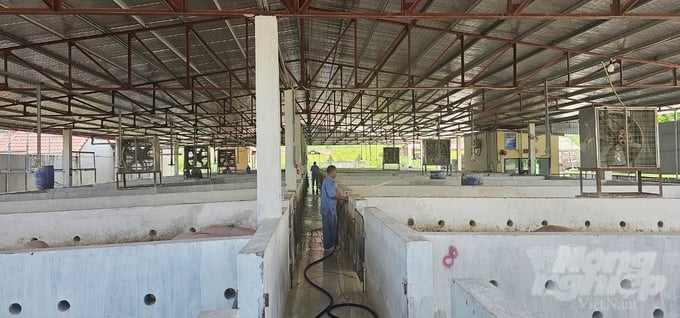
Staff at the Thanh Hoa Pig Sales Center handle the environment when introducing pigs into the temporary holding area. Photo: Quoc Toan.
Thanh Hoa currently has a pig population of about 1.3 million, 26 million poultry and around 423.000 cattle and buffalo. Livestock farms across the province are actively and proactively implementing disease prevention measures for their animals to ensure a stable and safe food supply for the upcoming Lunar New Year 2025.
It is forecasted that in the final months of the year and during the Lunar New Year, the demand for animal products will rise sharply, leading to an increase in the transportation, circulation and slaughter of livestock and poultry. This increase poses a significant risk of unregulated and potentially unsafe animal products entering the market, which could impact food safety and public health.
To mitigate these risks and prevent the spread of diseases among livestock and poultry, the Thanh Hoa Department of Livestock and Animal Health has implemented stringent control measures. Specifically, animal quarantine checkpoints at the province's entry points are operating 24/7, with the involvement of qualified veterinary inspectors and personnel. Mobile quarantine teams have also been deployed to high-risk areas to monitor and prevent the entry of animal diseases from outside the province.
In addition, authorities are enhancing inspections and taking strict action against any violations related to the transportation, trade or slaughter of livestock or animal products that have not undergone proper veterinary inspection.
At quarantine checkpoints, vehicles transporting livestock and poultry are required to stop and present their quarantine documents. The authorities will check the integrity of the seals, verify ear tags on cattle, inspect the containers used for transportation and carry out disinfecting procedures on the vehicles by spraying disinfectants. A confirmation stamp is then applied before the vehicles are permitted to continue their journey across the region.
In addition to these procedures, relevant authorities have strengthened their oversight of the entire process, including the transportation, slaughtering and trading of meat from both livestock and poultry. They are paying close attention to detecting and strictly handling any attempts to evade quarantine regulations, particularly cases where animal products or animals are transported without undergoing the required veterinary inspection.
Alongside these inspections, task forces are actively engaging with business owners, guiding them on how to fully comply with disease prevention protocols. Farms, livestock facilities and animal product processing plants are being instructed to register with veterinary staff the exact date and time of their shipments. This registration system ensures that inspections are performed according to a clear schedule based on the submitted declarations.
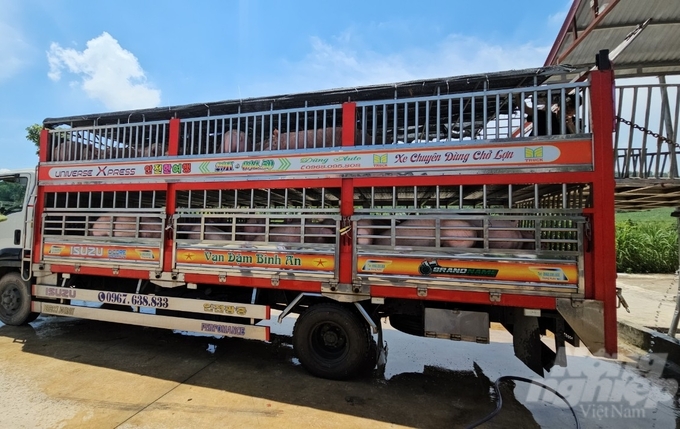
The specialized vehicle for transporting pigs at the Thanh Hoa Pig Sales Center is thoroughly cleaned before hitting the road. Photo: Quoc Toan.
For livestock farming facilities, the Thanh Hoa Department of Livestock and Animal Health has been actively collaborating with local authorities to intensify efforts in public awareness campaigns and provide guidance to farmers, encouraging them to take proactive and strict measures in disease prevention for their animals.
Mr. Dang Truong Giang, Head of the Disease Management Division at the Thanh Hoa Department of Livestock and Animal Health, mentioned that during the final months of the year, livestock will be exposed to increased risks of disease outbreaks, including Foot-and-Mouth Disease, African Swine Fever and Lumpy Skin Disease.
In order to prevent these diseases, the department recommends that farmers implement comprehensive biosecurity measures on their farms. This includes regularly cleaning and disinfecting animal pens and surrounding high-risk areas with lime powder and chemicals. Farmers are also advised to spray disinfectants and pesticides to eliminate vectors that could spread disease.
In addition, local authorities need to proactively monitor livestock and poultry diseases, especially in areas that have previously experienced outbreaks or those with high risk of disease. This is crucial for early detection, issuing warnings and taking decisive action to control the disease as soon as it is discovered.
Since the beginning of the year, authorities have conducted quarantine checks on over 310.000 pigs, more than 1.6 million poultry breeding stocks, nearly 700 tons of chicken meat, 9 tons of pork fat and nearly 200 tons of cattle and buffalo hides being transported out of the province. Quarantine measures have also been applied to 666 cattle and buffalo breeding animals, 142.000 pigs for slaughter, 500 piglets for export, 1.1 million poultry breeding stocks and more than 19 tons of buffalo and beef meat at key transport hubs.
Translated by Phuong Linh
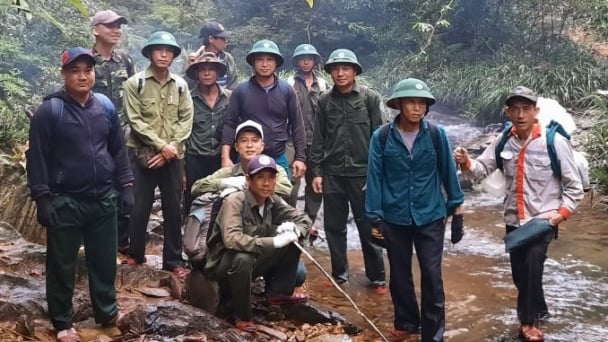
(VAN) All parties have acknowledged the barriers in mobilizing finance for conservation, proposing detailed initiatives. One of the most effective methods is to employ natural-based solutions.

(VAN) Vietnam is the country with the highest diversity of primate species in Southeast Asia, but most of them are seriously threatened, creating an urgent need for conservation efforts.
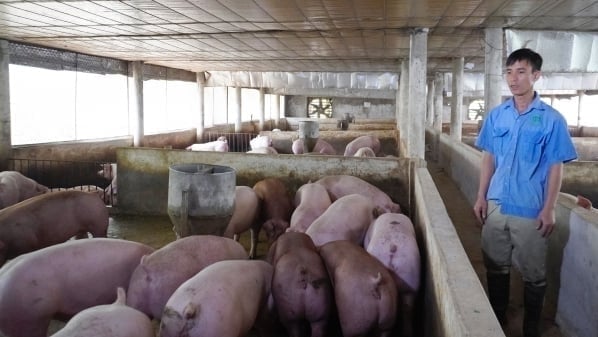
(VAN) Livestock farmers are still hesitant to use the new ASF vaccine products, mostly waiting for responses from large businesses before making a decision.
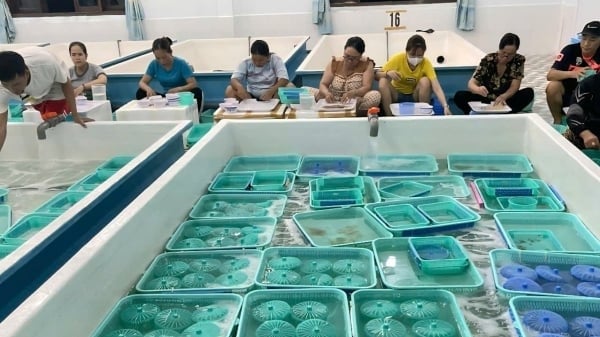
(VAN) Khanh Hoa and Phu Yen continue to strengthen inspection and control of lobster seed circulation in the area, and strictly handle violations.
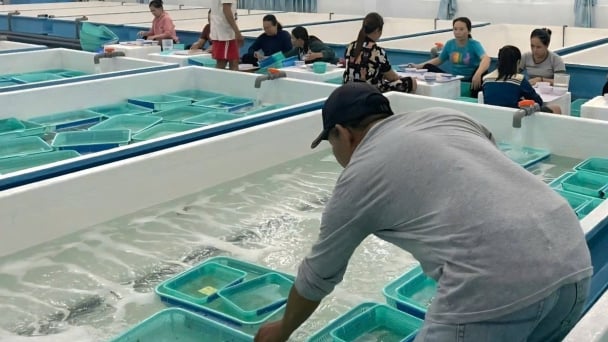
(VAN) Phu Yen and Khanh Hoa recently discovered many batches of lobster seeds of unknown origin. The authorities quickly moved and handled it as per regulations.
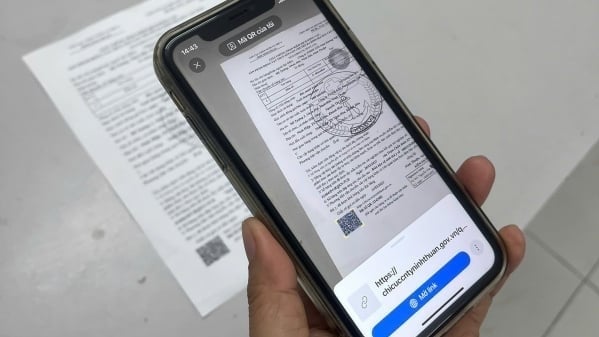
(VAN) Thanks to Ninh Thuans’s digitization of shrimp seed quarantine declarations, the procedures for payment and result reception are simpler and quicker.
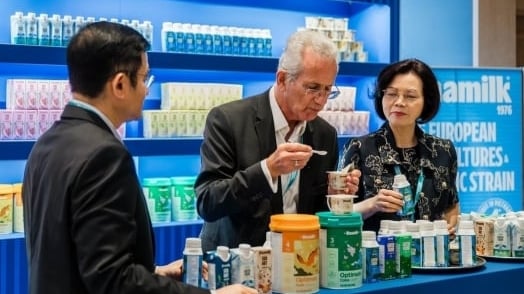
(VAN) In Amsterdam, the Netherlands, the 18th Global Dairy Congress 2025 took place from June 18-19, where Vinamilk won many grand awards.